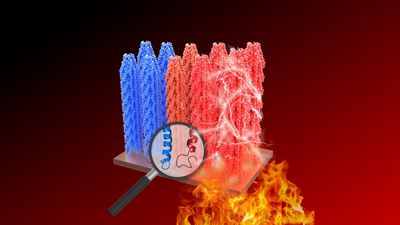Login
Subscribebacteriophage
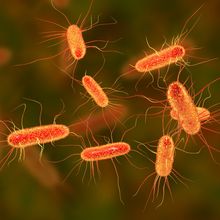
Bacterial Time Capsules May Inform Future Medicines
Danielle Gerhard, PhD | Nov 1, 2023 | 2 min read
Historical samples of bloodstream infections hold secrets to Escherichia coli’s evolutionary history and the emergence of virulent clones.
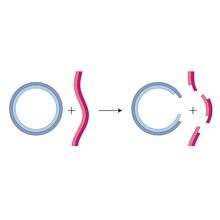
A Sticky Situation: Recombinant DNA Technology
Kathryn Loydall, PhD | May 1, 2023 | 5 min read
Janet Mertz’s work with simian virus 40 DNA during her graduate years was pivotal for developing DNA recombination as we now know it.

Virus Hunters: Searching for Therapeutic Phages in a Drug Resistant World
The Scientist’s Creative Services Team | 1 min read
Researchers Jason Gill and Paul Turner will discuss their work on bacteriophage therapy to treat drug resistant bacterial infections.
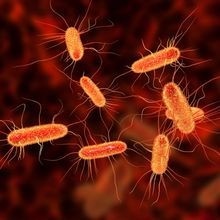
New Synthetic E. coli Is Immune to Bacteriophage Infection
Anna Napolitano, PhD | Mar 30, 2023 | 3 min read
Self-contained synthetic E. coli resistant to viral infection could prove invaluable to the biotechnology industry by increasing product consistency and reducing safety concerns.
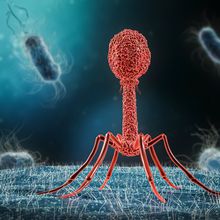
Prokaryotes Are Capable of Learning to Recognize Phages
Patience Asanga | Aug 17, 2022 | 3 min read
Immune defense genes in bacteria and archaea can identify viral proteins, a study finds, revealing similarities between the immune systems of prokaryotic and eukaryotic organisms.

The Scientist Speaks Podcast – Episode 3
The Scientist’s Creative Services Team | 1 min read
Tackling Antibiotic Resistance: Viruses to the Rescue
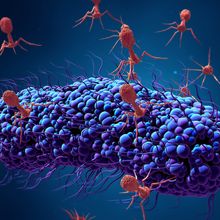
Phages Treat Gut Inflammation in Mice
Andy Carstens | Aug 4, 2022 | 5 min read
Mixtures of viruses that attack inflammatory bowel disease–causing bacteria in mice also survive the digestive tract and are well-tolerated in humans, a study finds.
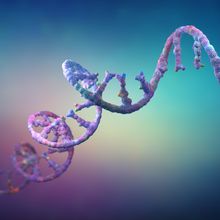
Katharina Höfer Probes the Machinery of Bacterial Gene Expression
Hannah Thomasy, PhD | Jun 13, 2022 | 3 min read
The molecular biologist studies how chemical modifications to RNA building blocks change the way RNA regulates complex cellular processes.
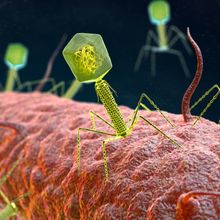
Bacteria Set Off Viral “Bombs” Inside Neighbors
Natalia Mesa, PhD | Mar 7, 2022 | 2 min read
A study finds some E. coli can deploy a chemical called colibactin to reawaken long-dormant viruses inside bacteria, causing destruction.
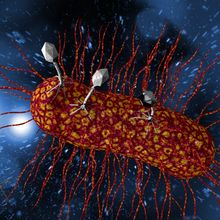
Bacteria-Infecting Viruses in Gut Microbiome Linked to Cognition
Dan Robitzski | Feb 16, 2022 | 5 min read
Research in mice and flies suggests that bacteriophages, including those found in dairy foods, may have an influence on an animals’ ability to learn and remember information.
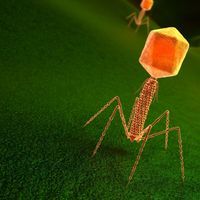
Some Viruses Use an Alternative Genetic Alphabet
Abby Olena, PhD | Apr 29, 2021 | 4 min read
In a trio of studies, researchers follow up on a 40-year-old finding that certain bacteriophages replace adenine with so-called diaminopurine, perhaps to avoid host degradation.

Retrons Help Bacteria Defend Themselves from Phages: Study
Catherine Offord | Feb 1, 2021 | 2 min read
The mysterious DNA sequences appear to help bacterial cells spot when they’ve been infected with viruses—and prompt those cells to self-destruct.
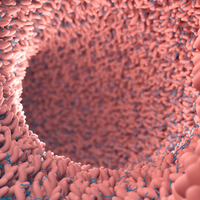
Distinct Microbiome and Metabolites Linked with Depression
Rachael Moeller Gorman | Dec 9, 2020 | 4 min read
The gastrointestinal tracts of people with major depressive disorder harbor a signature composition of viruses, bacteria, and their metabolic products, according to the most comprehensive genomic and metabolomic analysis in depression to date.

Gene Splicing Pioneer Dale Kaiser Dies
Ashley Yeager | Jun 29, 2020 | 5 min read
Working with a virus that infects bacteria, the Stanford University biochemist and developmental biologist helped to develop a way to stitch DNA together, a discovery that gave rise to genetic engineering.

Switch Master: A Profile of Barbara Meyer
Diana Kwon | Jan 13, 2020 | 9 min read
Working with bacteriophages and nematodes, the University of California, Berkeley, molecular biologist uncovered a role for genetic switches in early development.

Infographic: Phage Protein Helps E. coli Evade Mouse Immune Cells
Catherine Offord | Jan 13, 2020 | 1 min read
Researchers suggest the viruses can help endosymbiotic bacteria get along with their hosts.
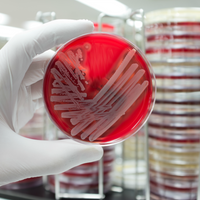
Opinion: We Need More than New Antibiotics to Fight Resistance
Neil S. Greenspan and Arturo Casadevall | Nov 1, 2019 | 3 min read
Metabolic disrupters, phages, and other approaches are going to be needed to treat the broadest possible range of patients infected by bacterial pathogens resistant to multiple drugs.

Genetically Modified Viral Cocktail Treats Deadly Bacteria in Teen
Ashley Yeager | May 8, 2019 | 2 min read
Tweaking the genomes of two phages and combining them with a third phage helped to clear a persistent Mycobacterium infection in the patient.

Researchers Discover 10 New Immune Systems in Bacteria
Jim Daley | Jan 25, 2018 | 3 min read
The findings more than double the number of known defense mechanisms, piquing the interests of molecular biology tool developers.
